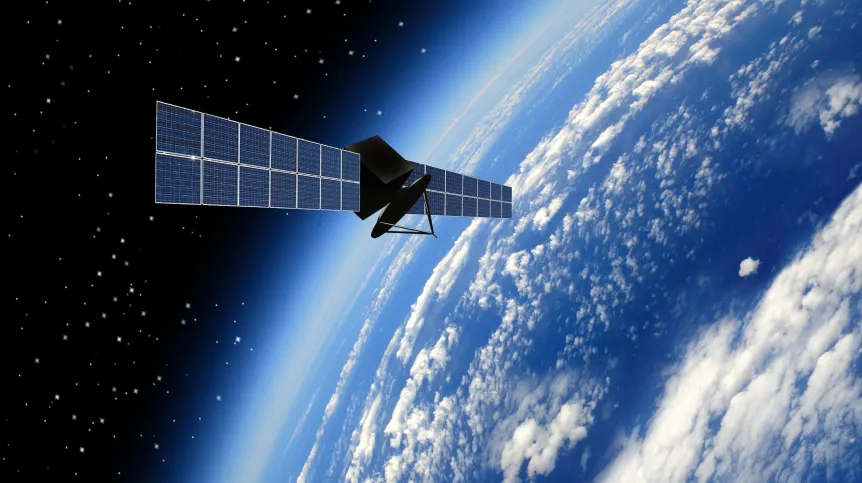
A whopping 1,170 percent more satellites were sent into space in 2023 than in 2013, says a report by the Polish Economic Institute and the Polish Space Agency.
According to the report tilted 'Space Economy', there are currently over 12,800 satellites in space, with 11,300 of them in Earth's orbit.
'The number of satellites launched in 2023 is 1,170 percent higher than in 2013. More satellites were launched between 2017 and April 2024 than from the beginning of the space age to 2016. In the years 2016-2023, the average annual increase in the number of objects sent into Earth's orbit was almost 50 percent', says the report.
'European Union member states and the United Kingdom are responsible for 10 percent of all satellites sent into Earth orbit and 12% of those launched after 2000', says Jędrzej Lubasiński, senior analyst from the sustainable development team at the Polish Economic Institute.
Head of the sustainable development team, Dr. Paula Kukołowicz, adds that 'the dynamic increase in the number of satellites launched in recent years is mainly due to the significant decrease in associated costs, which has amounted to 95 percent over the last three years'. This, in turn - as Kukołowicz points out - results from the development of technologies that have made it possible to reduce the size of the devices, as well as the technology developed by SpaceX to reuse rockets that carry satellites into orbit.
The authors of the report point out that satellite communication is the second largest segment of the space economy, responsible for 1/3 of the value of the entire space economy. 'In 2022, it was valued at USD 158 billion. Other segments, including Earth observation, account for a total of USD 76 billion and 16 percent of the entire space economy', the report says.
The largest expenditure on space programs is incurred by the United States, which spent $73 billion in 2023. The second country is China with a budget of $14 billion. The USA is also the country responsible for the largest number of objects launched into space. A total of 17,000 satellites have been sent since 1957, 56 percent of them by the United States.
According to the report, Poland also contributes to the development of the space economy by paying EUR 69 million to the European Space Agency (ESA) in 2023, the equivalent of 0.014 of Polish GDP. At the beginning of 2024, 507 Polish entities were eligible for participating in ESA (European Space Agency) project tenders.
The Polish Economic Institute adds that in 2023, the Ministry of Development and Technology increased the contribution to ESA and allocated a total amount of EUR 360 million to programs supporting the development of the space sector in Poland, EUR 200 million of which is to be allocated to the implementation of optional ESA programs in 2023-2025. 'This amount clearly increases investments in ESA activities compared to the original budget assumptions', says the report. The global value of public expenditure on the space sector in 2023 amounted to USD 117 billion and increased by 15 percent compared to the previous year and by 176 percent compared to the value from a decade before.
The authors of the study point out that the space economy consists of all types of products and services related to the process of sending cargo into space, maintaining it there and deriving benefits from them. 'The value of the space economy defined in this way in 2022 was USD 464 billion', they report. The largest segment of the space economy is satellite navigation, which accounts for approximately half of its value amounting to USD 230 billion in 2022. France remains the leader in space spending in Europe.
'The development of satellite communications, Earth observation services, space tourism and emerging prospects for space mining clearly demonstrate the enormous potential and growing commercial profitability of space projects', says the President of the Polish Space Agency, Professor Grzegorz Wrochna. He points out that 'Poland is part of this rapidly evolving landscape of space activities'. 'We have a thriving space sector, and our entities already participate in European supply chains, supporting the development of the domestic economy', Wrochna says.
The Polish Economic Institute is a public economic think tank. Its research areas include: macroeconomics, energy and climate, foreign trade, economic foresight, digital economy. (PAP)
Anna Bytniewska
ab/ pad/ kap/
tr. RL













